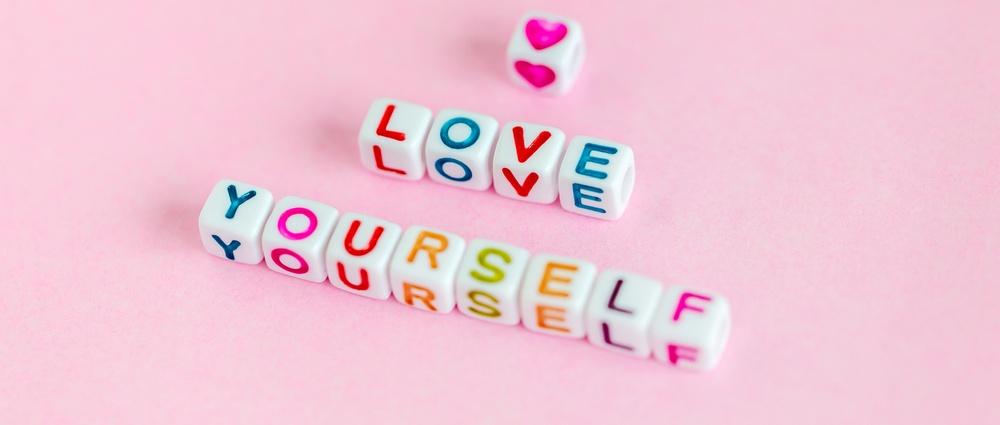
Comment améliorer son estime de soi et être plus gentil avec soi-même ?
Peer reviewed by Dr Colin Tidy, MRCGPLast updated by Lynn StephenLast updated 3 Nov 2025
Répond aux besoins du patient lignes directrices éditoriales
- TéléchargerTélécharger
- Partager
- Langue
- Discussion
Nous avons tous des jours où nous ne nous sentons pas bien dans notre peau, et il est rare de trouver quelqu'un qui a toujours confiance en lui. Mais une mauvaise estime de soi persistante peut avoir un effet néfaste sur notre vie et notre bien-être mental.
Self-esteem is how we value ourselves and when we have healthy self-esteem, we generally feel positive about ourselves and our lives. When our self-esteem is low, it can leave us feeling worthless, undeserving of happiness, or low in confidence, which can affect our health, work and relationships.
Dans cet article :
Poursuivre la lecture ci-dessous
Estime de soi et confiance en soi
Low self-esteem stems from the beliefs you have about who you are as a person, and your opinion of yourself. It is more powerful and tends to pervade all areas of life.
Dr Sheri Jacobson, Clinical Director of Harley Therapy explains that low confidence, however, is about how you rate your skills and abilities. It can affect one or several areas of life. For example, you might have low confidence with public speaking, but be very confident with stating your mind in a small group.
Low self-esteem often begins in childhood - for example, as a result of bullying. But stress and difficult life events can also have a negative effect on our self-esteem, such as an illness, a bereavement, or a challenging life change, such as redundancy.
Anne Millne-Riley, a therapist, confidence coach, and a Counselling Directory member, says you can't always spot someone who has low self-esteem, but common signs are sensitivity to criticism or avoidance of social interactions. Some people may avoid trying new things, or stay away from challenging situations.
She explains: "People with low self-esteem can be more focused on their personal issues and avoid any situation where they might be 'centre stage' and they can think negatively. It is common for them to feel nervous or anxious and they would avoid situations where they might be judged or compared to others."
Although having low self-esteem isn't a mental health condition in itself, the two are closely linked. Having low self-esteem in the long term may lead to an issue such as depression or anxiety.
Naomi Barrow says low confidence and self-esteem leaves her struggling with everyday tasks.
She says: "Getting dressed can send me into a tailspin - and has left me crying more times than I care to count - so I tend to wear the same thing pretty much every day. Showering can also be incredibly difficult if I'm having a bad body image day. Leaving the house can be a real challenge.
"Il est difficile de détailler les conséquences d'un manque de confiance en soi, parce que c'est littéralement tout. Cela m'a fait perdre des amis, manquer des moments avec ma famille, éviter les vacances ou les visites, et en général me cacher.
Les étapes pour renforcer votre estime de soi
Bien qu'il ne soit pas facile de faire taire complètement cette voix intérieure critique, vous pouvez prendre certaines mesures pour améliorer votre estime de soi et vous sentir plus positif.
Remettre en question les croyances négatives
Il est utile d'identifier les croyances négatives que vous avez sur vous-même, puis de les remettre en question.
Jacobson says: "Sit down and make a list of all the things you say against yourself, or if you are brave enough ask friends what sorts of things they notice you saying.
"For each criticism you have of yourself, write down the exact opposite. Then come up with 'facts' that prove both sides. You'll likely be surprised to find you can find proof for both sides. This exercise shows how our 'beliefs' are usually not so true at all.
"Finally, come up with a statement that is balanced and in the middle - such as: 'I'm not always naturally assertive, but if I need to be, I can be.'"
Se concentrer sur les aspects positifs
Prendre le temps de réfléchir à vos réussites peut vous aider à avoir une vision plus positive de vous-même. Il peut également être utile de dresser une liste de ce que vous aimez chez vous.
Barrow says she writes down three positives at the end of every day.
She explains: "It can be really difficult some days, and there have been days when they've included things such as 'my dressing gown is fluffy' and 'my heat pack is warm'. But it forces me to try to find some good in every day."
Identifiez vos déclencheurs
Millne-Riley recommends asking yourself if there are times when you feel more confident or less confident.
She says: "If we can identify the triggers that drain us of confidence and those factors that help us relax and be ourselves, we can identify areas for self-development and strengths we can build on.
"Demandez à des amis de confiance et à des membres de votre famille de vous aider à identifier vos points forts, vos compétences et vos talents. Écoutez ce qu'ils ont à dire et apprenez à vous apprécier."
Essayer les thérapies par la parole
Talking about your feelings with a trained professional can help you work through issues and build self-esteem.
Millne-Riley says: "Cognitive behavioural therapy can help you to think more positively about yourself and your abilities. You will learn to challenge your limiting beliefs and become less self-critical as you focus on your strengths."
Soyez gentil avec vous-même
Although it can be difficult to find the motivation to take care of yourself, it's important for your mental wellbeing.
Geraldine Joaquim, a hypnotherapist, recommends taking time out to do things that make you happy.
She advises: "Put non-negotiable dates in your diary for 'me time' such as a yoga class or joining a book club, or whatever you like doing for relaxation. Prioritise your relaxation - stress makes that inner voice louder so reducing your stress through relaxation helps to dampen it."
Établir des relations positives
Cela peut sembler évident, mais passer du temps avec des personnes qui vous apprécient et vous traitent bien est essentiel pour améliorer l'estime de soi.
Barrow says: "In terms of thinking most positively, I'm working on building up an army of cheerleaders around me. These people are amazing friends, colleagues and family who build me up rather than dragging me down."
Se mettre au défi
Setting yourself a goal can help you feel more positive about yourself. This could mean joining an exercise class, going to a social event, or even trying out a new recipe.
Choix des patients pour Le bien-être mental

Santé mentale
Positivité corporelle : 7 habitudes quotidiennes pour s'aimer et s'accepter à tout âge
À mesure que nous grandissons et évoluons, notre corps et notre état d'esprit changent. Ces transitions naturelles peuvent affecter notre estime de soi, ce qui rend difficile le maintien de la positivité corporelle. Cependant, il est important de se rappeler qu'il faut aimer son corps - et soi-même - à chaque étape de la vie.
par Victoria Raw

Santé mentale
Que faire si vous vous sentez seul ?
La solitude est une épidémie croissante au Royaume-Uni. Environ la moitié d'entre nous se sentent parfois ou toujours seuls. Mais quelles en sont les conséquences sur notre santé physique ? Et comment pouvez-vous vous aider si vous vous sentez seul ?
par Victoria Raw
Historique de l'article
Les informations contenues dans cette page ont été évaluées par des cliniciens qualifiés.
Prochaine révision prévue : 3 novembre 2028
3 novembre 2025 | Dernière version
15 février 2018 | Publié à l'origine
Auteur: :
Lydia Smith

Demandez, partagez, connectez-vous.
Parcourez les discussions, posez des questions et partagez vos expériences sur des centaines de sujets liés à la santé.

Vous ne vous sentez pas bien ?
Évaluez gratuitement vos symptômes en ligne
Inscrivez-vous à la newsletter destinée aux patients
Votre dose hebdomadaire de conseils santé clairs et fiables, rédigés pour vous aider à vous sentir informé, confiant et maître de la situation.
En vous abonnant, vous acceptez notre politique de confidentialité. Vous pouvez vous désabonner à tout moment. Nous ne vendons jamais vos données.